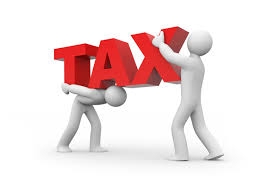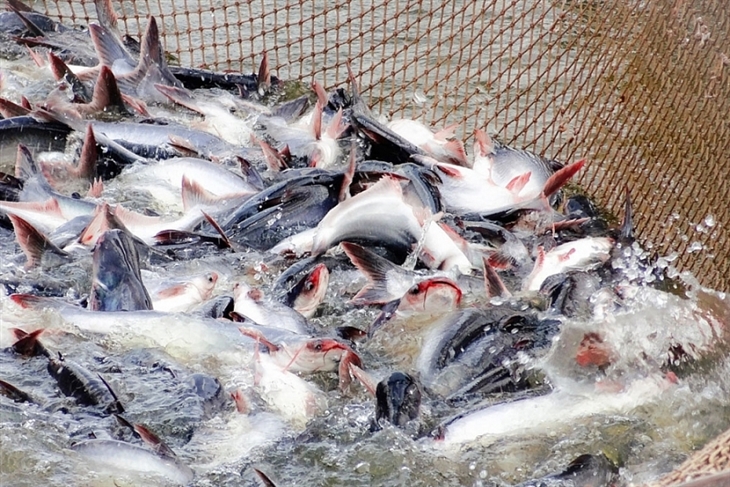Tax reform should focus on raising tax revenues
Thứ sáu, 21-7-2017
AsemconnectVietnam - Strengthening tax systems has emerged as a key priority in improving the resilience of the national economy and supporting its growth objectives.
Vietnam News reporter Mai Huong interviews Alex Mourmouras, chief of the Asean1 division at the IMF’s Asia Pacific Department and the Fund’s Vietnam mission chief, about tax reforms.
Could you tell us about the latest developments regarding international tax reform in the Asean region?
Mobilising domestic revenue sources has emerged as an important priority in supporting national efforts to promote inclusive growth. The scope of reforms encompasses direct taxes, which include personal and corporate income taxes; indirect taxes, such as value added and excise taxes, and other revenue sources, including property and land taxes and fees.
For Vietnam and other Asean countries in which export-oriented manufacturing is an important growth driver, the tax treatment of international companies with direct inward investments in the region is a key feature of countries’ attractiveness as investment destinations.
The establishment of the Asean Economic Community (AEC) in January 2016 has forged greater interdependence in the region and has brought to the fore the importance of coordination among Asean tax authorities to limit aggressive tax planning by multinationals and regional enterprises. Asean countries have started implementing the recommendations from the G20-OECD Base Erosion and Profit Shifting (BEPS) project that, while not specific to Asia, aims to limit the opportunities for tax avoidance for businesses that operate across borders.
Vietnam recently joined the 2016 BEPS Inclusive Framework that brings together over 100 countries to collaborate on the challenges of international taxation. Indonesia, Singapore and Thailand are also members.
Tax reform is a top priority for a developing country like Vietnam in attracting foreign investment. What specific areas should the Vietnamese government focus on?
It is important to place Vietnam’s tax reforms in the Asean and domestic contexts. Some countries compete with their neighbours in providing generous tax incentives to attract foreign direct investments. When other things are equal, multinational enterprises are naturally more inclined to invest in countries that offer tax incentives. However, the resulting international tax competition risks worsening countries’ fiscal accounts and undermining their ability to achieve sustainable economic development in the long term.
Turning to Vietnam, the government has a relatively high debt level, which must be reined in. It is important to mobilise more revenue in order for the government to rebuild fiscal space and finance much-needed expenditure. This includes public infrastructure and social spending to improve heath and education and raise the skills of the labour force. Policymakers must also start preparing now for future fiscal needs: while Vietnam’s population is young now, it is aging rapidly, which requires work to fortify the country’s pension system.
Strengthening Vietnam’s public finances will require action on both the revenue and expenditure sides of the budget. Among the priority areas on the revenue side are: unifying VAT rates, raising excise taxes and energy and environmental taxes, and introducing a recurring property tax.
Consideration should also be given to taxing land transactions and better capturing revenues from state land sales to fund infrastructure investment. These reforms will help make Vietnam’s revenue system more efficient and will help meet the country’s Sustainable Development Goal commitments.
Vietnam is integrating more deeply in the regional/global economies and needs to develop a more sophisticated and internationally integrated tax system. What are the key factors in building an efficient tax system to ensure both goals of State budget collection and facilitation of business activity are met?
A country’s tax system is an important factor that businesses consider when deciding where to invest. Fair, simple and stable tax laws are easy to understand and help level the playing field for domestic and international investors. They also help lower compliance and administrative costs and make tax administration more transparent and less discretionary.
But non-tax considerations are often equally important in international firms’ direct investment decisions. Sound public finances that underpin macroeconomic stability, a skilled workforce and good infrastructure are vital for businesses, in particular multinational enterprises, in planning their long-term investment and production location strategies.
In today’s increasingly digital world, a country’s soft infrastructure matters more for a country’s business climate and international investors. That means property rights that are well defined and properly (and evenly) enforced, including those of the owners of tangible and intangible capital.
Vietnam is developing new regulations to deal with profit shifting among big corporations. What is IMF’s suggestion in addressing this issue?
The IMF strongly supports Vietnam’s tax reforms, including helping address BEPS challenges. As the 2017 host country for Apec, Vietnam is currently leading the work to advance the BEPS initiative among these countries, and the IMF is an active participant in this process. As of May 2017, Vietnam implemented a new decree dealing with the prices charged by different units of multinationals in internal transactions (transfer pricing) to bring its tax rules in line with best practices in the BEPS action plan.
While it is important to keep Vietnam’s rules in line with internationally agreed principles, it is also a prerogative of the Vietnamese authorities to decide how to address profit shifting. At the same time, we believe that a more equal tax treatment of all investors in Vietnam would help broaden and strengthen the tax base.
Could you share the recent cooperation and support between IMF and Vietnam’s government in tax building capacity and future programmes?
In recent years, the IMF has been supporting the tax reform efforts of the Ministry of Finance and its general directorate of Taxation. We have discussed options for tax policy reform in support of inclusive economic growth and to compensate for lower oil-related revenues.
This year for example, the government and the IMF have worked closely to consider options for reorganising the structure of tax administration and supporting Vietnam’s objective to steadily raise tax revenue as a share of GDP. The IMF stands ready to continue this close cooperation and is willing to provide further technical assistance and training in both tax policy and tax administration.
Source: bizhub.vn
Mời tham dự "Hội chợ Triển lãm Quốc tế Algiers lần thứ 54"
Việt Nam đề nghị Hoa Kỳ tạo thuận lợi cho xuất khẩu hoa quả tươi
Danh sách doanh nghiệp Algeria nhập khẩu nguyên liệu bao bì
Doanh nghiệp Rumani cần tìm nhà cung cấp vải không dệt dùng làm túi xách
Công ty Nhật Bản cần nhập nước hoa quả 100% đóng hộp 1 lít
Buổi giao thương, kết nối Việt Nam - Ấn Độ đối với mặt hàng nông sản và thực phẩm chế biến
Đan Mạch – Thúc đẩy nghiên cứu xanh trong thiết kế thời trang và dệt may
Đan Mạch – Chiến dịch kiểm soát đối với một số sản phẩm của Cơ quan quản lý thực phẩm và thú y Đan Mạch năm 2023
Na Uy – các sản phẩm mỹ phẩm sử dụng chất giải phóng formaldehyde phải được dán nhãn cảnh báo và giới hạn mới đối với chất chống UV Benzophenone-3 và Octocrylene
Algeria: Cơ hội kinh doanh trong lĩnh vực thuốc bảo vệ thực vật, bao bì
Tập đoàn linh kiện ô tô Valeo tìm kiếm nhà cung cấp tại Việt Nam
Lễ hội cà phê Buôn Ma Thuột năm 2023 có gì đặc sắc?
Doanh nghiệp Đan Mạch muốn nhập khẩu sản phẩm thép không rỉ
Doanh nghiệp Senegal tìm đối tác trong lĩnh vực bảo quản nông sản

Xuất khẩu cá tra sang thị trường Brazil giảm 2 con số
Tính đến giữa tháng 2/2023, xuất khẩu cá tra Việt Nam sang thị trường Brazil đạt giá trị 10,5 triệu USD, giảm 51% so với cùng kỳ năm ...Điểm tên 9 mặt hàng xuất khẩu tăng trưởng dương 2 tháng ...
Tình hình xuất nhập khẩu hàng hóa của Việt Nam tháng 2 và ...


